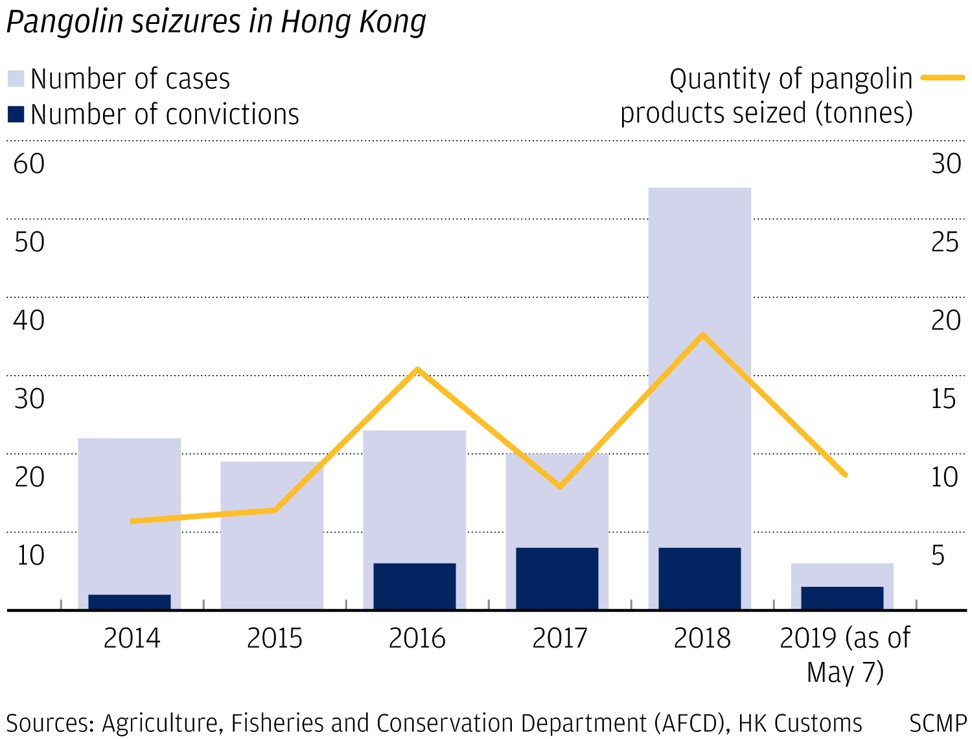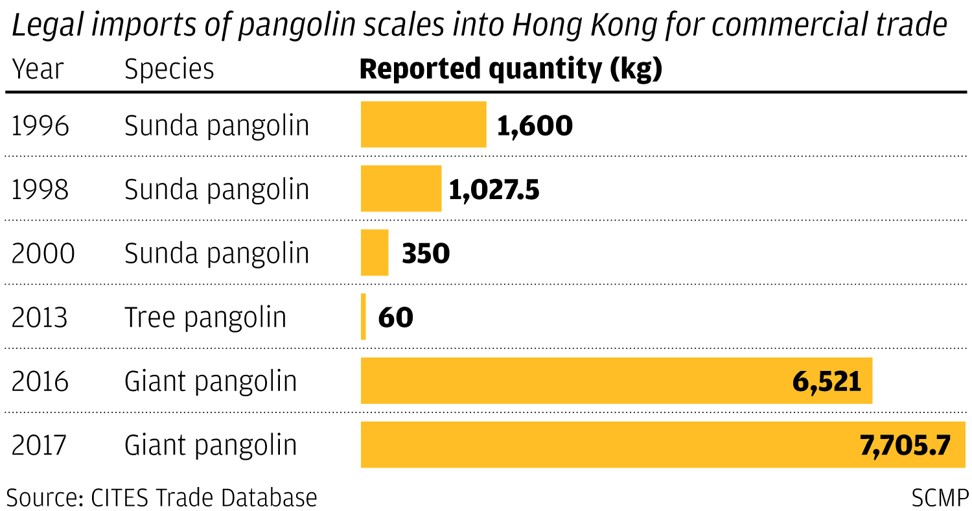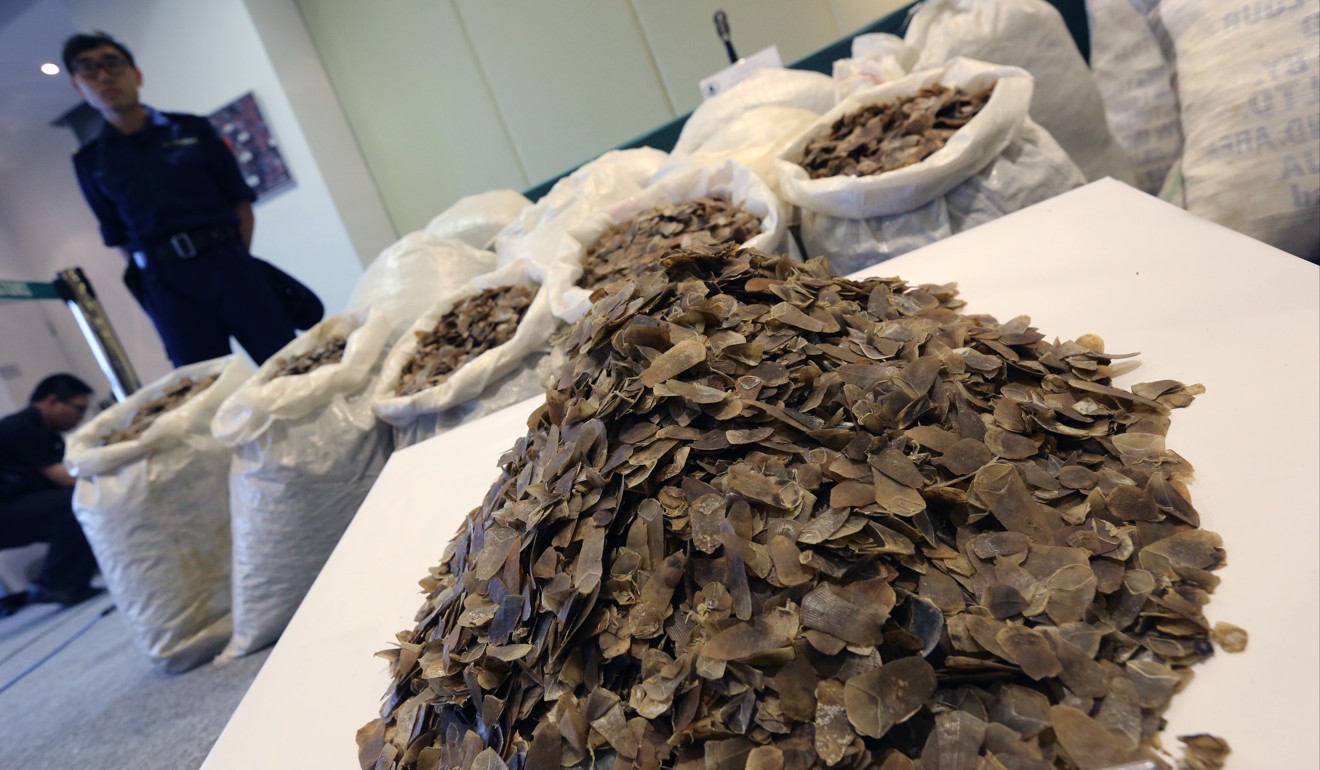
Hong Kong’s black market in pangolin scales feeding demand in mainland China, campaigners fear
- Government has issued just one licence for possession, fuelling concern over what has happened to 14 tonnes of the outlawed products
- Campaigners believe they have been smuggled over the border as the endangered mammal faces further decline in numbers

Fears have been raised that tonnes of illegally hoarded pangolin scales in Hong Kong have been smuggled to mainland China after it was revealed the city has issued just one licence for possession.
Government records reveal a solitary permit has been handed out for 350kg of the endangered mammal’s scales since a global ban on their trade was imposed in 2017.
That is despite international trade statistics showing a record 14.2 tonnes of the natural products were imported from East Africa to Hong Kong with export permits in 2016 and 2017, before the worldwide ban on their sale was imposed in January 2017.
Anyone in Hong Kong who possesses pangolin products for commercial trade must apply for a permit since February, under changes to the Protection of Endangered Species of Animals and Plants Ordinance that took effect in November last year and were introduced to increase safeguards for the mammals.

Only one licence – for possession of pangolin scales weighing 350kg – has been issued, the Agricultural, Fisheries and Conservation Department said, adding no permits have been handed out for the export or re-export of such products since 2016.
Given the low levels of domestic consumption in Hong Kong, the findings by the Post sparked concerns from conservationists and a lawmaker that massive amounts of scales have been illegally traded or even smuggled out of the city.
“Some traders in Sheung Wan may sell a few kilograms [to local customers]. But not significant,” said Alex Hofford, a campaigner for WildAid.
“I think they [scales] are gone already. Gone a long time ago, came in, went out, because the supply chain moves quickly. Who will buy seven tonnes of pangolin scales and just sit on it?”
Hofford said he believed the 14 tonnes of scales imported to Hong Kong had been smuggled into the mainland to support the legal market with new stocks as the local legal stockpile was declining rapidly.
On the mainland, raw pangolin scales can be obtained only at designated hospitals and from approved pharmaceutical companies, while legally sold processed scales must display a special label issued by the government.
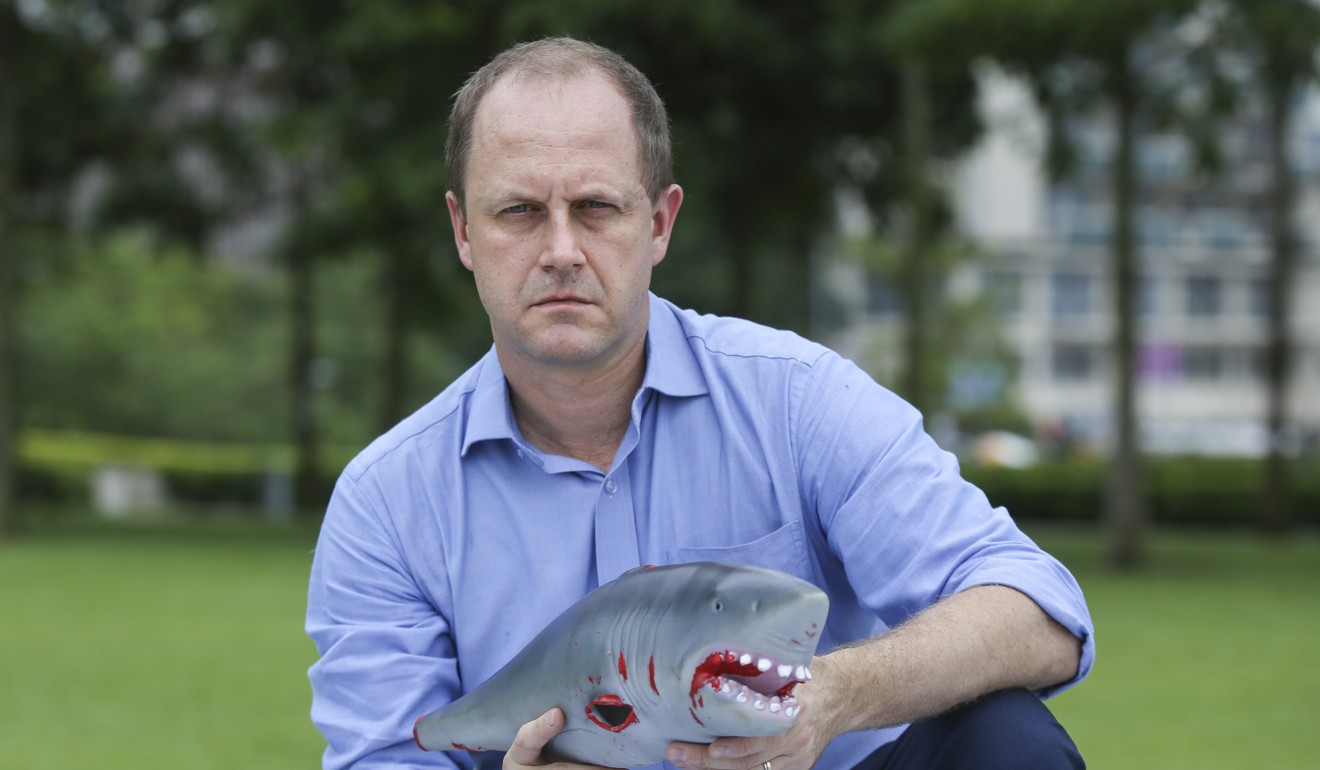
Global concern for the pangolins, the only known mammal wholly covered in scales and the world’s most trafficked mammal, has increased since 2017, when its endangered status was raised to the highest alert – an Appendix I species – by the Convention on International Trade in Endangered Species of Wild Fauna and Flora (CITES).
The same status was given to elephants due to the ivory trade.
Hong Kong has become a transit hub for smuggling pangolin scales into the mainland in recent years, with shipments mostly originating in Africa.
Figures from the government and the Customs and Excise Department show more than 61 tonnes of the products have been seized since 2014, with the largest quantity shipped from Nigeria.
In the first five months of this year alone, at least 30 tonnes of smuggled scales and the same weight of frozen pangolins have been seized by authorities in Asia, including Hong Kong, Singapore and Malaysia.
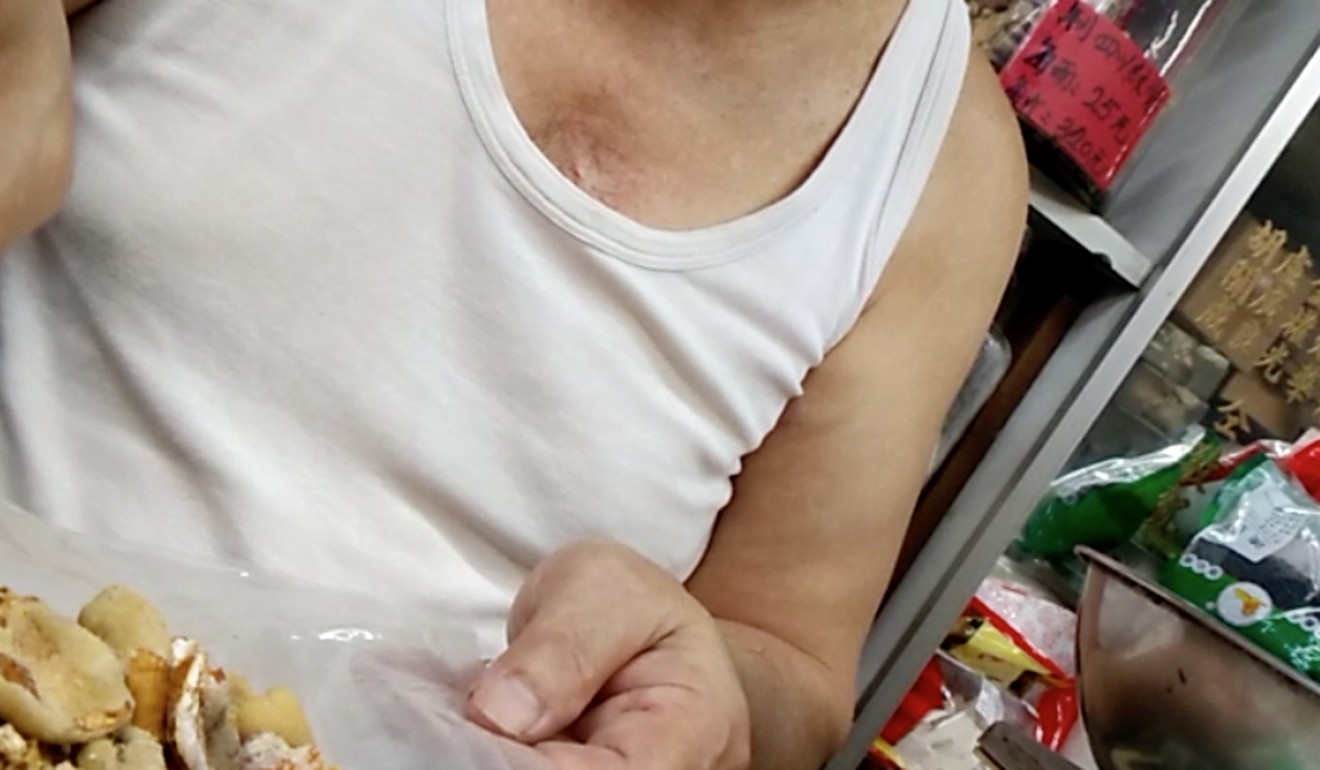
The department said some pangolin scales could be for local consumption.
But the Post’s visit to more than 20 Chinese medicine shops as a customer found only one shop selling scales in a small amount by the gram, with a total stock of about 500 grams. Others said they did not have any stock.
One owner, surnamed Chan, at a traditional medicine shop in Sheung Wan, said last week that they had not been selling scales for at least 10 years.
But he added people were willing to pay high prices to build up supplies as there was demand on the mainland.
According to the trade database of CITES, a total of 6.5 tonnes and 7.7 tonnes of scales of giant pangolins, one of the eight species living in Africa, were imported from Burundi to Hong Kong in 2016 and 2017 respectively.
Only three tonnes of pangolin scales were imported from Southeast Asia in the past 40 years, the database showed.
The scales, which contain keratin, are believed to have high medicinal value for treating conditions such as breast milk stoppage, rheumatoid arthritis and sores in traditional Chinese medicine.
But some experts argued that there was no scientific evidence showing that pangolin scales were effective as a treatment and other substitutes could perform similar functions.
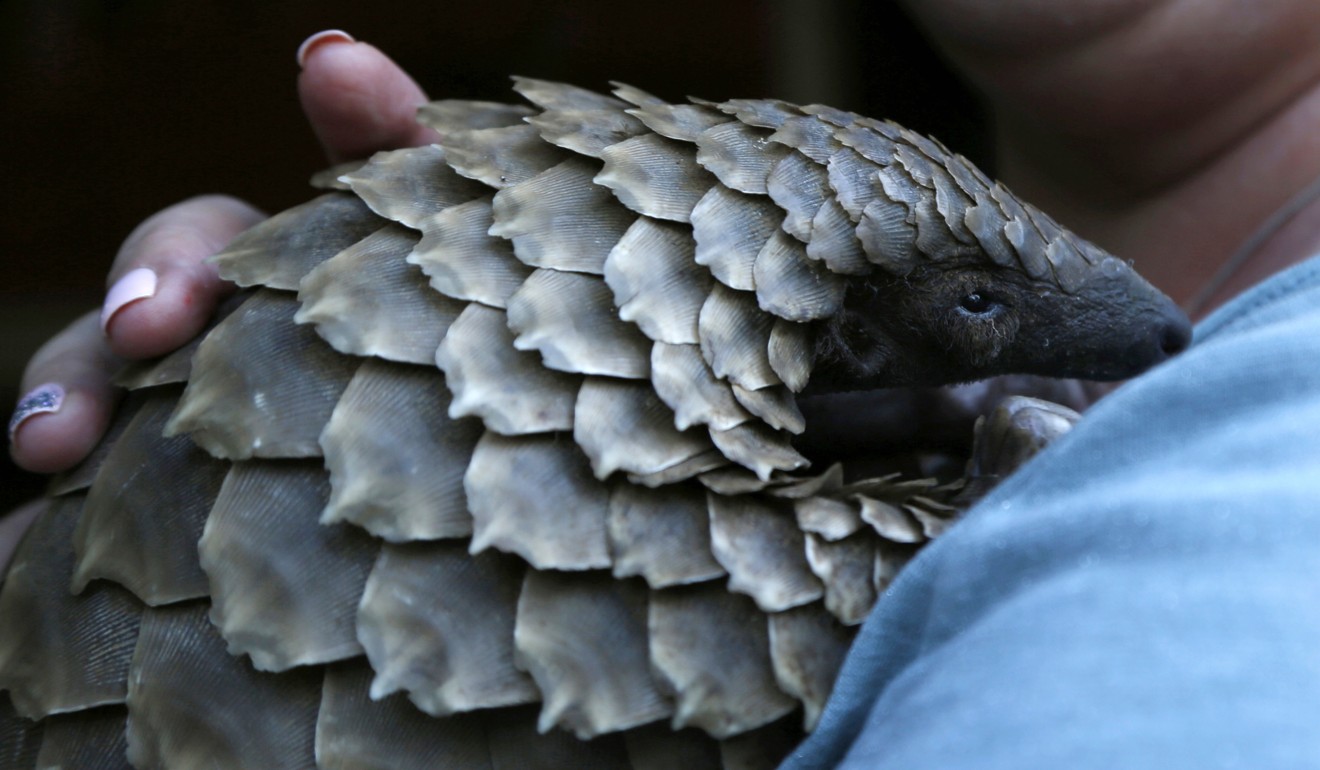
Dan Challender, chair of the pangolin specialist group at the International Union for Conservation of Nature, said the major concern for the scaly anteater was that intercontinental trafficking to Asia was placing extra pressure on populations of the African species, which is driving their decline.
Lawmaker Elizabeth Quat, who sits on the legislature’s environmental affairs panel, urged the authorities to investigate the whereabouts of the two large imports.
“It is not convincing that these scales have stayed in the domestic market as there is no such demand,” she said. “The rampant smuggling of pangolin scales has been a global issue.
“A responsible government should look into the cases to find out whether there is any smuggling or illegal activity involved.”
Asked if customs would investigate, a spokeswoman said it had not found any illegal possession since the local legislation took effect in November last year, adding it had stepped up inspections and would take enforcement action if irregularities were identified.
The department declined to disclose details of the local importers involved.
The maximum penalty for illegally importing an Appendix I species is a fine of HK$10 million (US$1.3 million) and 10 years in jail.
